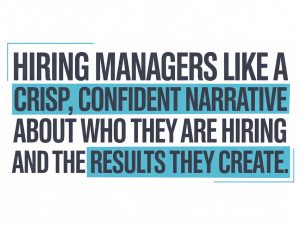How to Stand Out in a Difficult Job Search
 When the job market tightens, most candidates react the same way—by applying more frequently, not more wisely. However, employers remember those who demonstrate clarity, initiative, and authenticity. To stand out amid the noise, even during a recession or in a highly competitive market, focus on three behaviors that consistently set candidates apart in a difficult job search.
When the job market tightens, most candidates react the same way—by applying more frequently, not more wisely. However, employers remember those who demonstrate clarity, initiative, and authenticity. To stand out amid the noise, even during a recession or in a highly competitive market, focus on three behaviors that consistently set candidates apart in a difficult job search.
1. Show Up Prepared in a Way That Most Candidates Don’t
Preparation is one of the rarest and most powerful differentiators in a difficult job search. Most people walk into interviews hoping to “wing it”—you won’t.
Do this:
- Review the company’s current priorities (press releases, product launches, funding updates, leadership moves).

- Prepare a 60-second Value Snapshot outlining:
- What you’re known for.
- A recent achievement with measurable impact.
- How do you solve the employer’s biggest problem?
- Bring three thoughtful questions that signal team-member thinking rather than job-seeker thinking.
Example standout question:
“Based on what I’ve learned about your recent expansion strategy, where do you see the biggest opportunity for this role to add value in the next 90 days?”
Why it works:
Preparation signals respect, initiative, and strategic thinking—traits hiring managers consistently prioritize.
2. Deliver a Clear, Memorable Narrative (Most People Can’t)
Skills matter in a difficult job search, but clarity wins. Hiring managers easily forget vague candidates—even talented ones. They remember applicants who articulate a crisp, confident narrative about who they are and the results they create.
a crisp, confident narrative about who they are and the results they create.
Do this:
– Craft a simple three-part narrative:
- Who you are (professional identity)
- How you operate (strengths + style)
- What results you deliver (measurable outcomes)
– Reinforce this narrative everywhere—résumé, LinkedIn, interviews, and follow-up emails.
Micro-example:
“I’m a project manager who brings structure to messy, fast-moving teams. My focus is clarity, communication, and results. In my last role, that approach saved $220K in project overruns.”
Why it works:
People make emotional decisions first and justify them with logic. Clear stories stick, differentiate, and get candidates hired.
3. Follow Up Like a Pro (It’s Shockingly Rare)
In a difficult job search, thoughtful follow-up shows professionalism, emotional intelligence, and real interest—yet most candidates skip it entirely.
Do this:
- Send a tailored thank-you email within 24 hours.
- Reference something specific from the conversation.
- Reinforce the core value you bring.
- Add a small “bonus insight” to stay top-of-mind without being pushy.
Follow-up example:
“I appreciated hearing how your team is transitioning to new onboarding workflows. I’ve led two similar transitions and would be excited to bring that experience to your team.”
Why it works:
Most applicants either don’t follow up or send generic notes. A thoughtful message can tip a hiring decision in your favor.
Bottom Line
Standing out in a difficult job search isn’t about being the loudest candidate—it’s about being the most prepared, the clearest, and the most professional. In a tough market, mastering these three habits consistently places you in the top 10% of applicants—often higher.


Sources
- Harvard Business Review – “How to stand out in a Job Interview”
- LinkedIn Talent Insights Report (2024) – Data on candidate behaviors and recruiter preferences
- Society for Human Resource Management (SHRM) – “The Importance of Follow-Up in Recruiting”
- Glassdoor Hiring Study – Insights on what makes candidates memorable to hiring managers



0 Comments